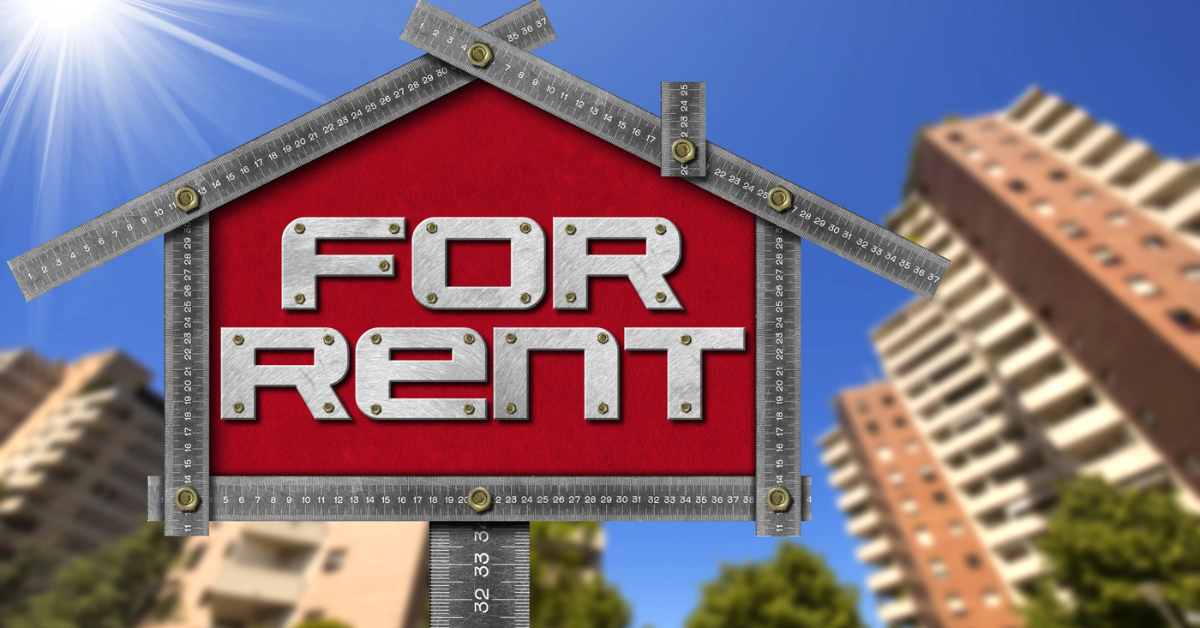
Owning and managing a rental property comes with both benefits and challenges. As a property manager, you’ll handle tasks beyond just collecting rent. These include managing tenants, maintaining properties, and overseeing finances—all crucial for smooth operations, tenant satisfaction, and profitability.
Landlords handle these responsibilities differently. Some prefer hands-on management, while others use professional property management services. Some even combine both methods, managing certain aspects themselves while relying on professionals for others. Regardless of the approach, understanding landlord-tenant laws is essential.
In this article, we’ll guide you through managing your rental property effectively, whether you choose to do it yourself, hire professionals, or take a hybrid approach.
Understanding Your Responsibilities as a Landlord
Managing a rental property can turn it into a steady income source. To achieve this, understanding your responsibilities is essential. These tasks include maintaining a livable property, complying with landlord-tenant laws, and building good relationships with tenants.
By fulfilling these duties, you become more than just an owner; you become a key part of the landlord-tenant dynamic. This role impacts the success of your real estate investment.
Tenant Management
Effective tenant management is central to property management. Clear communication is essential for a good landlord-tenant relationship. Start with an appealing rental listing, conduct regular inspections, and handle lease management details transparently and respectfully. Establish clear guidelines for rent payments and upkeep to foster a cooperative relationship with your tenants.
Property Maintenance
Regular property maintenance is vital. Ignoring minor issues can lead to costly repairs. Keep up with seasonal maintenance and respond quickly to tenant requests. Form a reliable team of contractors for heating, cooling, plumbing, and electrical work. This ensures the property remains habitable and safe, preserving its value as an asset.
Financial Management
The financial health of your rental property is crucial. Accurate tracking of income and expenses is essential. Use property management software to streamline financial management, generate precise reports, and simplify tax preparation. Organized financial records protect you from unnecessary taxes and provide a clear view of your property’s performance
Preparing Your Property for Rent

Ensuring that your rental property is in excellent condition, both inside and outside, can significantly increase the likelihood of attracting quality tenants who are more likely to stay long-term.
By maintaining your property, making all requisite repairs before it goes on the market, and providing essential safety features like smoke detectors and carbon monoxide alarms, you enhance its appeal as an inviting living space, which may justify a higher rental rate. Every small detail creates an environment where tenants can see themselves residing.
Setting the Right Rent Price
Determining an ideal monthly rent for your property requires a delicate equilibrium between aligning with the current market rate and setting a price that meets your costs and provides investment returns.
Resources such as Rentometer and Zillow Rent Estimates can provide valuable information about rental rates of similar properties in your vicinity, helping you to set a competitive yet fair price that doesn’t shortchange the value of your property.
Marketing Your Rental Property
Attracting prospective tenants to your rental property necessitates a cleverly orchestrated marketing initiative. Since most renters opt to submit their applications online, establishing a robust digital footprint on platforms like Zillow and Zumper is crucial.
Implementing stellar online marketing tactics that include detailed listings and the provision for submitting applications digitally will help distinguish your property from others in the fiercely contested rental market space.
Conducting Property Inspections
Regular property inspections play a vital role in managing rental properties, safeguarding against possible damage, and documenting the property’s condition when tenants move in or out. Consistent inspections help preserve your property’s state and build trust with renters by showing dedication to maintaining high living standards.
Screening and Selecting Tenants
As rental property owners, the tenant screening process is your first defense against rental problems. By carefully examining potential tenants ‘ credit and rental history, you can reduce issues like late payments, evictions, and property damage.
Property management companies help conduct thorough background and credit checks to help you choose tenants who are likely to take care of your property and follow the lease terms.
Creating a Tenant Application Process
An effective tenant application process is necessary for collecting information from prospective renters. This process should be comprehensive, covering employment history and previous landlord experiences, and include verification steps, such as contacting references.
Running Background and Credit Checks
Background and credit checks are vital for understanding a prospective tenant’s financial reliability and past behavior. These checks are key to protecting your rental property and avoiding unreliable tenants.
Signing the Lease Agreement
Signing a lease agreement is the final step in securing a tenant for your rental property. This legally binding document must meet local regulations and clearly outline the terms of occupancy, ensuring both parties understand their responsibilities and rights. If you need assistance with lease agreements, property managers can help you with this legal document.
Managing Rent Collection and Security Deposits

Ensuring the timely collection of rent and effective handling of security deposits are key components in managing finances to secure consistent revenue and safeguard your property against potential harm. Landlords can facilitate a smoother process for collecting rent on time by adhering to the conditions specified in the lease agreement and embracing digital payment methods.
Collecting Rent Payments
Automated payment systems facilitate the timely and efficient management of rental income for landlords by providing convenience to contemporary tenants. Such systems support on-time rent payments through their capability for auto-pay setup, thereby greatly decreasing the chances of delayed rent payments.
Handling Security Deposits
Security deposits protect your property from unforeseen damages or rent defaults. Collecting these funds in advance and administering them according to the laws of your state is crucial, providing a process that is both equitable and compliant with legal standards for you and your tenants.
Maintaining Tenant Satisfaction
Tenant satisfaction is key to the success of when managing rental property. Landlords can encourage lease renewals and tenant referrals by offering great service, keeping the property in good condition, and fostering a sense of community.
- Responding to Maintenance Requests: Prioritize urgent maintenance issues and open communication channels. This commitment not only addresses tenant concerns promptly but also helps maintain the property in good condition.
- Ensuring Safety and Compliance: Safety and compliance are important in property management. Know your local safety regulations and conduct regular inspections to identify potential hazards. This ensures a safe living environment for tenants.
- Regular Communication: Regularly contact your tenants to quickly address concerns and ensure they are happy with their living environment. Use various communication methods, like newsletters and open forums, to ensure tenants feel heard and valued.
Record Keeping and Legal Compliance
Effective rental property management requires meticulous record-keeping and a solid understanding of legal obligations. Detailed documentation of transactions, maintenance, and tenant communications helps resolve disputes and meet tax responsibilities.
- Documenting All Transactions: Keep thorough records of all financial transactions related to your rental property. Organized documentation of income, expenses, and tenant information ensures smooth tax management and reduces stress during tax season.
- Understanding Landlord-Tenant Laws: Knowing landlord-tenant laws is essential for managing rental properties legally and effectively. Staying updated on these regulations helps you avoid fines and ensures a fair renting environment for you and your tenants.
- Preparing for Tax Season: Being well-prepared and maintaining orderly financial records can make tax season less stressful. Proper rental income and expense documentation can lead to significant deductions and accurate tax reporting.
Using Property Management Software

Currently, the fast-paced nature of the real estate market significantly benefits from technological advancements, especially when it comes to managing a rental property. Utilizing property management software offers numerous advantages, such as:
- Serving as an all-in-one platform for management necessities
- Providing up-to-date information instantaneously
- Facilitating efficient communication channels
- Making financial monitoring easier
With these platforms’ automation capabilities for repetitive operations, including rent collection and handling maintenance requests, you can devote more time to expanding your rental business and fostering better relationships with tenants.
Features to Look For
When selecting property management software, look for functionalities that align with your specific requirements. Essential components of an effective software solution include:
- Capabilities for integrated communication
- Processing payments online
- Generating detailed reports
Incorporating cutting-edge technologies like artificial intelligence and the Internet of Things can bring Improvements to your property management tasks by increasing efficiency and responsiveness.
Popular Software Options
Many property management software options are available, each designed to help with different aspects of managing rental properties. While small business accounting programs provide detailed reporting and strong management features, it’s important to consider their cost and ensure they fit your budget and property management strategy.
Developing a Long-Term Strategy
A successful rental property owner handles current tasks and plans for the future. Building a long-term strategy for property management involves setting SMART goals and staying adaptable to market changes.
By carefully selecting and diversifying your investment properties, you can reduce risks and develop a strong portfolio that thrives over time.
Expanding Your Portfolio
Growing your property portfolio is key to building wealth and securing financial stability. Diversifying your investments across various property types and locations helps you:
- Spread risk
- Tap into different market segments
- Ensure stable income streams
- Create opportunities for growth
Enhancing Property Value
Improving your rental properties can increase rental income and attract quality tenants. Focus on cost-effective upgrades, particularly in kitchens and bathrooms. Stay informed about local regulations and hire skilled professionals to ensure all renovations comply with building codes and add real value to your investments.
Hire an Experienced Las Vegas Property Manager to Successfully Manage Your Rental Properties
By implementing effective property management practices, you can maximize rental income, ensure tenant satisfaction, and maintain a healthy landlord-tenant relationship. If you need further assistance or prefer professional help, Faranesh Real Estate and Property Management are here to support you. Contact us today to learn more about our services and how we can help you achieve your rental property management goals.

